New fixed-income firm Checkpoint bets on transparency with depository clients
AUSTIN, TEXAS (June 19, 2019) - Checkpoint Capital LLC aims to stand out in a crowded field of fixed-income trading desks by providing price transparency to community banks and credit unions.
Founded in late 2018, Checkpoint's services include fixed-income trading, bond portfolio accounting, asset liability management, strategic planning and board education. It offers investment products and services through broker/dealer CUSO Financial Services LP. The firm is targeting depositories with assets around $200 million and up to about $10 billion.
Founder Jon Virostek, whose experience includes stints as a managing director at Brean Capital LLC, Cantor Fitzgerald & Co. and Stifel Nicolaus & Co. Inc., said Checkpoint can appeal to any size depository, but those with at least $20 billion in assets tend to have more investment infrastructure and less of a need for Checkpoint's services.
While many established broker/dealers offer fixed-income trading and other services to depositories, Virostek said in an interview that Checkpoint is taking a different approach by revealing to customers just how much the company makes on a trade.
Jon Virostek, Checkpoint founder and president
Source: Checkpoint Capital LLC
Community banks and credit unions often have no idea how much of a markup they pay when making a trade, Virostek said, which puts them at a disadvantage to other clients of fixed-income trading desks. He noted that larger banks can afford resources such as staffing, a Bloomberg terminal and analytics that enable them to get more transparency into bond prices. Retail investors are protected under 2018 regulations requiring broker/dealers to disclose how much they make on trades.
Without the regulatory protections and resources to add technology, smaller depositories are one of the few remaining targets for broker/dealers looking to generate high margins on fixed-income trades, Virostek said.
"Community banks and credit unions are getting picked off," he said. "The margins are extremely wide."
Protecting profits is important for fixed-income desks because the electronification of trading has led to compressed margins in the business, and this has helped trigger staff reductions across the industry. Total full-time-equivalent fixed-income front office producer headcount has dropped 16.5% to 17,200 in the first quarter from 20,600 in the first quarter of 2014, according to research firm Coalition.
Given the cutbacks, building a fixed-income business in this environment may seem counterintuitive. However, Virostek said his firm does not have the same margin demands as established players because the Austin, Texas-based Checkpoint will look to operate with low overhead. "[We're] not going to be in class A office space in Manhattan," Virostek said.
He added that since Checkpoint is new, it can build its business to meet current market demands. "We don't have a lot of legacy technology or infrastructure that we're having to deal with or fire," Virostek said.
William Weber, who was recently named CEO and whose previous roles included working as co-head of financial strategies at Keefe Bruyette & Woods Inc., noted that the growth of de novo banks has ticked up, and those are potential client targets for Checkpoint. The company could also look to capitalize on merger fallout from such deals as Stifel Financial Corp.'s acquisition of First Empire Holding Corp., a fixed-income broker whose clients include credit unions.
"Some of the smaller community banks are probably not on the radar screen of some of these guys," Weber said in an interview.
While many are competing for fixed-income trading commissions, Virostek believes his company is in a field of its own. "We're disclosing commissions," he said. "There's nobody doing that."
Licensed to jv@checkpoint.capital
This article was published by S&P Global Market Intelligence and not by S&P Global Ratings, which is a separately managed division of S&P Global.
About Checkpoint Capital
Austin-based Checkpoint Capital offers community banks and credit unions affordable access to the latest financial technology and analytical tools in order to better understand their unique fixed-income investment needs and gain greater price transparency in the bond market. Our resources level the playing field with large institutions and empower community banks to lower costs, increase efficiencies and better manage risk.
Investment products and services are offered through CUSO Financial Services, L.P. (CFS), a registered broker-dealer (Member FINRA/ SIPC) and SEC Registered Investment Advisor.
To learn more, visit our website: Checkpoint Capital.




